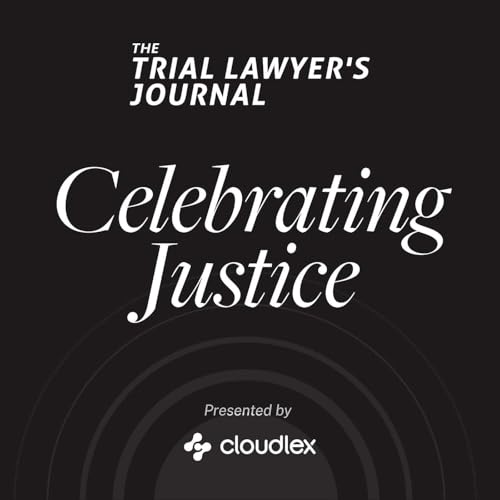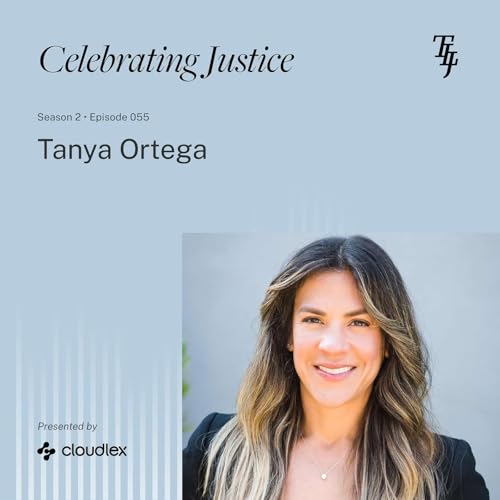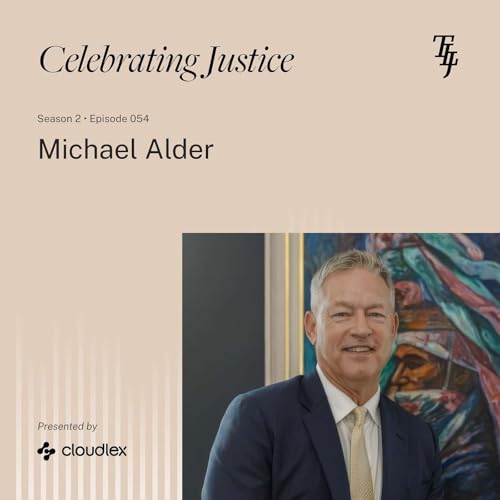
Celebrating Justice
Artikel konnten nicht hinzugefügt werden
Der Titel konnte nicht zum Warenkorb hinzugefügt werden.
Der Titel konnte nicht zum Merkzettel hinzugefügt werden.
„Von Wunschzettel entfernen“ fehlgeschlagen.
„Podcast folgen“ fehlgeschlagen
„Podcast nicht mehr folgen“ fehlgeschlagen
-
Gesprochen von:
Über diesen Titel
Welcome to "Celebrating Justice," the podcast that shines a spotlight on top trial lawyers, their career and the cases that matter most.
Each episode goes beyond the courtroom drama to gain insights into the personal journeys of each guest. From early inspirations and pivotal moments that steered them toward becoming trial lawyers, to the hurdles they've overcome in pursuit of justice, the podcast offers a unique glimpse into the dedication and perseverance required in the legal profession. Our episodes cover a wide range of topics, including personal injury, civil rights, medical malpractice, and much more.
"Celebrating Justice" is produced not just for legal professionals but for anyone intrigued by the complexities of law and its impact on society. Whether you're drawn to the strategic gamesmanship of trial work or moved by stories of advocacy and reform, "Celebrating Justice" promises rich, informative, and truly inspiring content.
© 2026 Trial Lawyer's Journal-
 Jan 30 202647 Min.
Jan 30 202647 Min.Artikel konnten nicht hinzugefügt werden
Leider können wir den Artikel nicht hinzufügen, da Ihr Warenkorb bereits seine Kapazität erreicht hat.Der Titel konnte nicht zum Warenkorb hinzugefügt werden.
Bitte versuchen Sie es später noch einmalDer Titel konnte nicht zum Merkzettel hinzugefügt werden.
Bitte versuchen Sie es später noch einmal„Von Wunschzettel entfernen“ fehlgeschlagen.
Bitte versuchen Sie es später noch einmal„Podcast folgen“ fehlgeschlagen
„Podcast nicht mehr folgen“ fehlgeschlagen
-
 Dec 16 202533 Min.
Dec 16 202533 Min.Artikel konnten nicht hinzugefügt werden
Leider können wir den Artikel nicht hinzufügen, da Ihr Warenkorb bereits seine Kapazität erreicht hat.Der Titel konnte nicht zum Warenkorb hinzugefügt werden.
Bitte versuchen Sie es später noch einmalDer Titel konnte nicht zum Merkzettel hinzugefügt werden.
Bitte versuchen Sie es später noch einmal„Von Wunschzettel entfernen“ fehlgeschlagen.
Bitte versuchen Sie es später noch einmal„Podcast folgen“ fehlgeschlagen
„Podcast nicht mehr folgen“ fehlgeschlagen
-
 Dec 2 202529 Min.
Dec 2 202529 Min.Artikel konnten nicht hinzugefügt werden
Leider können wir den Artikel nicht hinzufügen, da Ihr Warenkorb bereits seine Kapazität erreicht hat.Der Titel konnte nicht zum Warenkorb hinzugefügt werden.
Bitte versuchen Sie es später noch einmalDer Titel konnte nicht zum Merkzettel hinzugefügt werden.
Bitte versuchen Sie es später noch einmal„Von Wunschzettel entfernen“ fehlgeschlagen.
Bitte versuchen Sie es später noch einmal„Podcast folgen“ fehlgeschlagen
„Podcast nicht mehr folgen“ fehlgeschlagen



